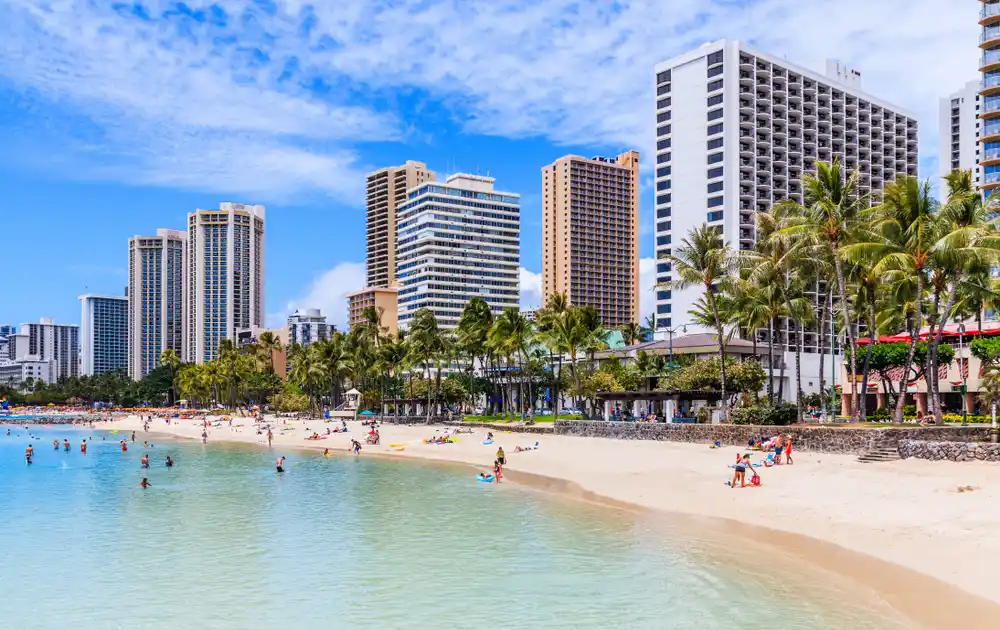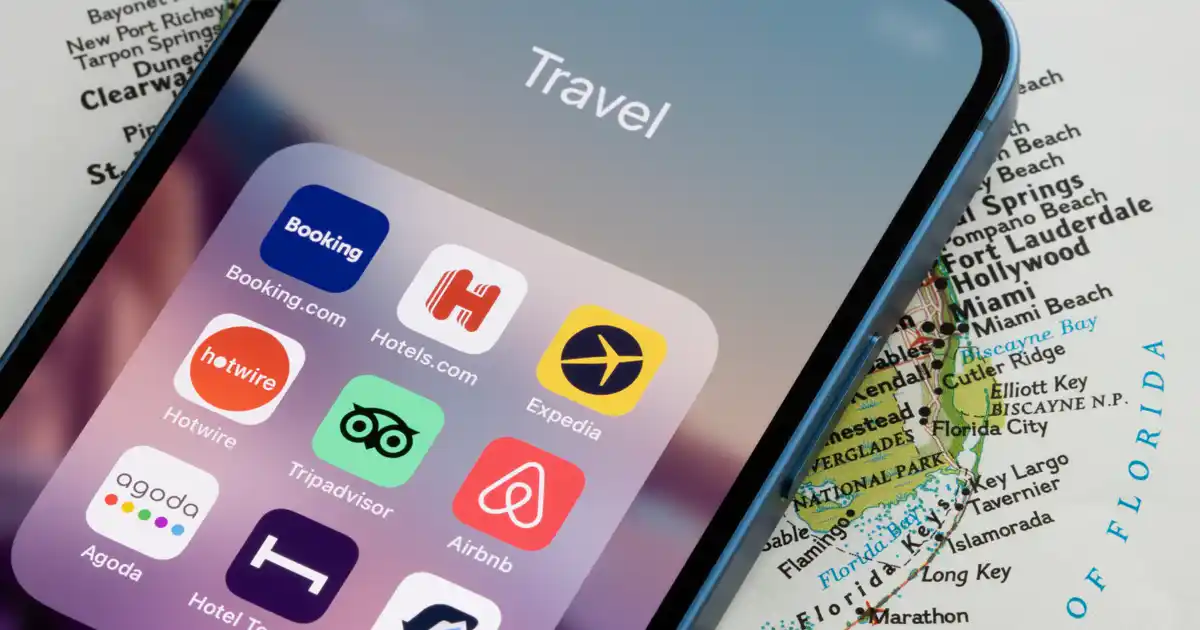When you’re traveling, one of the largest chunks of your budget will go toward accommodations. In many of the world’s top destinations, you’ll pay a pretty penny for a room—especially if you’re vacationing during peak tourist season or during a popular event. Hoteliers are wise to the ways of travelers and they usually increase rates when they know they can demand it. So what’s a budget traveler to do? There are many options: couchsurfing has been facilitated by the Internet and there are always hostels or, if you’re lucky enough, family and friends who might open their doors to you in far-flung places.
While all of those can be great options, sometimes you just have to bite the bullet and book a hotel room, whether it’s for amenities and comfort, or just for proximity to a location. What you don’t have to do is pay top-dollar for your bunk; there are many ways to find a place to put up for the night without blowing your budget. Here are seven great tips for booking a hotel room —at a more affordable rate.
7. Take a Geography Lesson
What do you like to do while on vacation? If you’re hoping to catch a play or a concert, then you’re probably going to look for an entertainment district in your holiday city. If you’d rather hit the beach or maybe play a round of golf, you’re going to want to look for hotels that are nearer to the activities you enjoy. Food is also an important consideration; do you really want to drive or take transit just to grab lunch? Checking out where you want to go, what you want to do and which hotels are closest to where you want to be is always an excellent move.
You’ll like also want to look at the hotel “landscape.” What kind of properties does your holiday destination have on offer? If there are several different types, such as budget hotel options, luxury hotels and all-inclusive resorts, look for where different property types tend to cluster. If you’re traveling on a budget, you probably don’t want to book where all the swankiest hotels are located, since the businesses around them are likely to be high-end and pricey too.
 Shutterstock
Shutterstock6. Do Your Homework
One mistake that novice travelers often make is booking a room on the first site they visit or without checking back on later dates. That almost guarantees that you’re going to book at a higher price than you could. Don’t jump the gun; deal-hunting requires patience.
Once you have an idea of where you want to stay, narrow your hotel choices to about 10 properties. Your best bet is to visit price aggregators such as Hipmunk, Trivago and Kayak.com. These sites search multiple booking sites and list the best deals based on your filter preferences, which saves you time in searching and comparing each and every individual booking site. With Hipmunk, their site features vacation rentals along with hotels (the only American website to do so) and their “ecstasy” filter works wonders for getting you a balance between luxury and pricing. The site also has a mapping feature, which can show you where the best food and nightlife are in the city, and how close various properties are to those hotspots. Trivago has the largest database, searching over 200 booking sites, and Kayak.com allows you to check multiple hotels at once.
 Shutterstock
Shutterstock5. Seek Out Packages
Many hotels have deals with rental car companies; most booking sites also have deals with rental companies and airlines, as well as hotels. Through these arrangements, most booking sites offer package deals—which offer you more bang for your buck. If you’re looking at jetting off somewhere, certainly take a look at which flights will come bundled with which hotels. See if any of your preferred properties are bundled with a flight, especially if you’re not exactly particular about which airline you fly or what time you need to get up and drive to the airport. If you know you’ll need a rental car for all or part of your trip, be sure to check out bundles for that as well, since it can save you money in the long run.
A word to the wise on packages: package deals can be great, but they are not a solution for all trips. They work best if you’re heading between two large hubs, such as New York and Paris or Toronto and London. If your trip is complex, including several stop overs and different destinations, a package may not work in your favor so make sure you do some comparisons.
 Shutterstock
Shutterstock4. Look for Unpublished Rates
Hotels don’t publish all of their rates. While booking sites and price aggregators can get you some pretty good deals, those deals are all based on published rates —which are rates given to the general public. Sometimes, though, the best deals are so-called hidden or “secret” rates, which are the rates that the hotels don’t want you to see. Hoteliers offer lower rates for rooms they don’t think they can sell, but they tend to keep that fact on the low-down so that they can still charge the price they want.
Taking advantage of unpublished rates can be tricky, since the information can be difficult to track down. A site like getaroom.com, which specializes in flash deals, will offer unpublished rates to customers who call a toll-free line. A word of caution though: make sure you trust the site you’re using. Many sites claim to offer great deals and secret rates; customers who book through them arrive only to find they either don’t have a room or are being charged a much higher rate. Take advantage of these deals—but don’t let yourself be taken advantage of!
 Shutterstock
Shutterstock3. Go in Blindfolded
This is not as bad as it might sound at first. Much noise has been made in the past little while about sites like Priceline.com and Hotwire.com. These sites allow you to pick a geographic area and a star-rating, so you know that you’ll at least be near your preferred destination and getting quality service you’re comfortable with. Other than that, the process is blind; you don’t know where you’re staying until your credit card bill reflects the charge.
With Priceline, you bid on the hotel room; Hotwire allows you to choose a discount rate. That means you can score some pretty sweet deals, but it also means that you’re taking a risk. While you won’t end up in a dive as long as you set your filters right, you are giving up control about where exactly you stay—and for some travelers, that is just not acceptable, no matter the price-point. If you’re more concerned about budget than whether you’re staying at a chain hotel or supporting a local business, getting an opaque deal can be your best bet for saving the most money.
 Shutterstock
Shutterstock2. Go Direct
Sometimes, the best way to get a deal is simply to ask for one. Booking sites generally take anywhere from 20 to 30 percent commission on hotel reservations made through them, which means you have a gambit for the hotel. Pluck up your nerve and pick up the phone; call the hotel and tell them that you’re about to book a room with them through a booking site. Then ask them if they’ll give you a discount for booking directly with them instead. While some hotels are more than happy to split the extra revenue of a direct booking with you, others are reluctant. If that’s the case, you can always ask to speak to a manager or the owner. Someone higher up in the chain might be more willing to sweeten the deal for you.
If you’re booking in a foreign country (or on another continent!) and don’t want to run up long distance charges, use Skype or an app like Viber to make your call. If you’re booking in a country where English isn’t the native language, you might also consider simply emailing—although this can be a slower and less direct method of communication.
 Shutterstock
Shutterstock1. No Deal Is Final
Well, that may not be entirely true. Always be sure to check cancellation policies on the booking site deal and the hotel before attempting to pull a switcheroo—if you don’t, you could end up on the hook for more than you bargained for, and not in a good way.
If you do luck out and book a refundable or pay-later deal with a decent cancellation policy, you can check out Yapta.com and last-minute booking sites in order to ensure you’ve still got the best deal. There are also countless apps that will do the legwork for you; some of the best are Hotel Tonight and the Europe-only Blink. If you do stumble across a better deal before you take off on holiday, don’t be afraid to cancel your existing reservations and book at a better price-point. Unless you’ve locked in by paying a non-refundable fee or a deposit, or your cancellation policy will charge you even a percentage of the room, you are not obligated to hold your reservation if something better comes along. Just be sure to read the fine print!
 Shutterstock
Shutterstock







